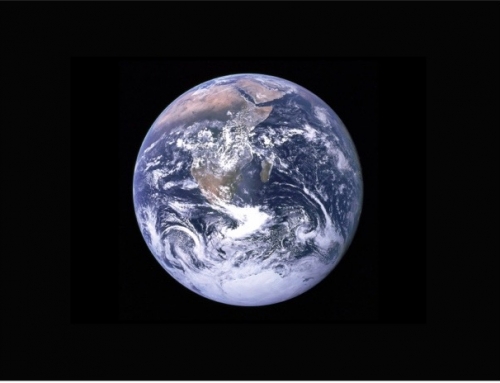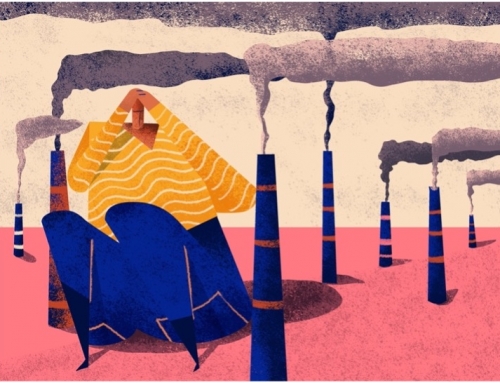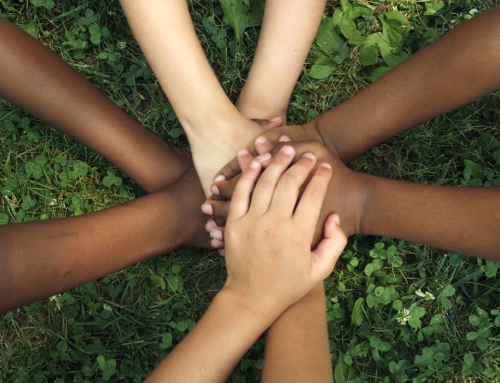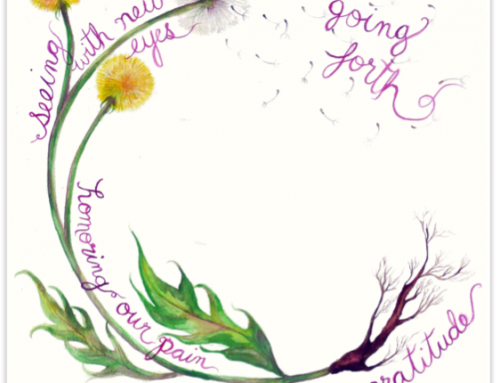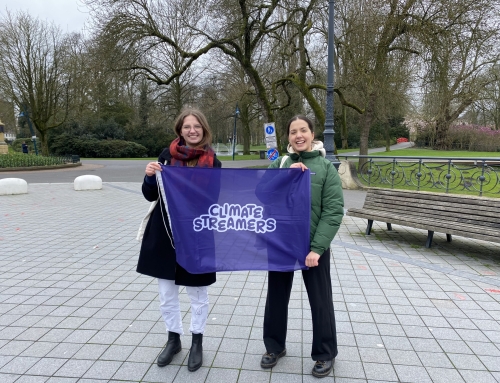Time for a pitstop. In this last blog, I will temporarily stop my car and take a look at the path that I left behind me. As I mentioned in my previous blog, I have been constructing my own story over the last couple of weeks, months and years. Approaching the end of my beginning, my Bachelor in Social Innovation, I will check my rear-view mirror to look back on which route I travelled. I have had some bumps in the road and some green waves and I will take you along the ride to zoom in on times where I almost had to call the triple-A and times where I want so fast that I almost got a ticket for speeding.
MISS DECISION
I am not one to easily change her mind. Generally speaking, I would describe myself as a person that knows what she wants. From choosing if I want to eat pasta or pizza for dinner, to if I wanted to start at HBO or at university. All my choices up until that point were easy. When I started at the Academy for Leisure, I already knew that I was going to choose the Event Management track in the second year. That’s the prime reason I came. However, along the way of the first year, my interest in social issues increased, due to my natural interest and the conversations I had with my friends as I mentioned in my previous blog. Until this day, I am not entirely sure what drove me to drastically change the initial choice I made before I started my education. What I do know, is that it has made me feel like I was able to design my own learning path and am now able to see the bigger picture, of our world, or society and where I see myself in that picture.
MISS IDENTITY
In the first year of Social Innovation, I started doing research on human identity in individuals, youngsters especially. This, because I noticed that due to a large amount of options in choices youngster have, which I mentioned in my blog: ‘There’s no such thing as a stupid question’, the decision-making process becomes more difficult, also in my own experience. I wondered where I could step into this process to enable youngsters to make decisions that fit their identity best so that they avoid making the wrong decisions. I signed up to become a Young Impact trainer. A program facilitated by NJR to empower youngsters to have a positive impact on the world. The impact you want to make is completely up to the youngster. They can use their own values, beliefs and interests to create this impact. In this way, identity helps to see where their power lies to make a positive impact.
MISS ENTREPRENEUR
Somewhere in the second year, I started to notice that my interest shifted from individuals and especially youngsters to business life. My father is an entrepreneur and for as long as I can remember, I was fascinated by the life of an entrepreneur: the risks, the bold moves, the new ideas, the innovation and the economy. I started seeing that businesses could do the same as individuals. Businesses, likewise as individuals have an identity, they go along in the shift to the purpose economy (Hurst, 2014). What if I could empower businesses to make an impact instead of these youngsters as individuals? I was sick and tired of people my aged who stated that they wanted to be either rich or famous when they grow older. Why do ‘doing good’ and ‘receiving a sufficient income’ not go together? Is there a way to use business as a force for good, so that you are receiving sufficient income whilst doing good? In fact, everybody still needs to pay their bills but is there a way that we can pay these bills and at the same time engage with contributing to a higher purpose, so do good?
MISS CRASH AND BURN
During this research, I came across a possible way to do this: social enterprising. I was on my green wave. If everybody just turned their commercial company into a social enterprise, that is it, problem fixed. I knew that it wasn’t that simple, but at least, it was where I saw a potential start. Wow wow wow, almost a ticket for speeding, missy. I started my graduation internship at Studio Lauda, a design agency, to see where and if I could help them with social enterprising or using business as a force for good. I had a conversation with Krijn, my supervisor, who mentioned the circular economy. Bump in the road, call the triple-A.
MISS TOGETHERNESS
Krijn mentioned that our world is moving to a circular economy and that there comes a certain point in time where our government is going to steer on changing our economy to a circular one. I started looking into this and I was shocked. Of course, I see the WNF commercials, the Save the Planet Campaigns and the World Clean Up Day initiatives. However, I had no clue what state our earth was actually in and our economy is largely to blame for this. At this point, I started thinking: ‘Okay, you have spent almost two years researching identity and impact, however, what does that even matter when our earth is in this horrible state?’ I started thinking that we, or at least I, should shift focus from the individual, whether this is as an actual individual or an individual business, to how I could spark more collectivism.
MISS IN A HURRY
In my graduation project, I researched how people perceive our current economy and what they think of the circular economy. What I found there changed my view again, bump in the road, call the AA part two. Most people are like me, they see the commercials, campaigns and initiatives, find them important and try to contribute individually. However, regarding circularity, they have no clue that it is more than recycling. I saw the relation between the individual contribution (separating garbage, going to work by public transport, eat less meat etc) and their identity, these are all individual choices they make. However, do all these individual choices have enough impact to save our earth in time? And the ‘in time’ part is the essential question. Isn’t the whole greater than the sum of its parts? Shouldn’t we work together as a whole to create an even bigger impact because we have so little time?
MISS START SMALL
The combination of my interviews and the people of Studio Lauda taught me to see that sometimes, the sum of its parts can have a significant effect as well. In fact, we still live in a world where a lot of people value their paychecks over the wellbeing of our planet. Which makes sense, looking at my blog ‘first things first’. Over the course of my graduation project, I felt conflicted. On the one hand, I think that people should see that we do not have enough time. Time is going to run out. People should see that they should better be safe than sorry when it comes to our planet and in order to be safe, we have to start now. On the other hand, everybody around me showed me (in interviews, in conversations, with friends) that I sometimes should settle to start small. Businesses now are showing signs of the willingness to change so that they can contribute to a better world through business, that is an achievement on its own. Businesses might not see the importance of circularity yet, but they start to see the importance of sustainability and that is a step. Of course, I would like to create awareness around circularity, convince every single business in the Netherlands that this is the best way. However, my project at Studio Lauda taught me to settle sometimes. I am impatient and what things to change overnight. What I realize now is that this change for some businesses lies in circularity, because they are ready. For others, this change lies in something as small as separating their garbage, because they realize now that they have to. I truly hope that this feeling of ‘I have to’ arises one day for circularity too, hopefully, before we are sorry.
MISS WHOLE
Now, moving forward from my rear-view mirror to my windshield. What lies ahead? I see myself as a professional that wants to help businesses to look at how they can contribute to a better world, whether this is through circularity or not. I believe that every single business has the ability and intrinsic motivation to contribute to a better world if they see how they can use the things they believe in to execute this. For some organizations, this might result in circularity. I realize now, likewise as to when I found my ‘social enterprising solution’ that there are more ways that lead to Rome. Likewise, Rome wasn’t built in a day. So, to answer my own question, I do think that identity helps. Your companies’ identity can be the starting point of the change. However, I do think that we should not underestimate the power of collectivism. Therefore, exploring where companies can work together as collectives towards the same goal is a beautiful next step in that journey. I see myself as a professional that helps your company to explore where your power lies to have an impact for a better world. An impact that lies close to your heart and what you believe in as a company. If every company starts with doing this, the sum of its parts starts working towards the whole.
References
Talks at Google. (2014, June 29). Aaron Hurst: “The Purpose Economy” | Talks at Google [Video file]. Retrieved from https://www.youtube.com/watch?v=bZf-BZk_9ic

